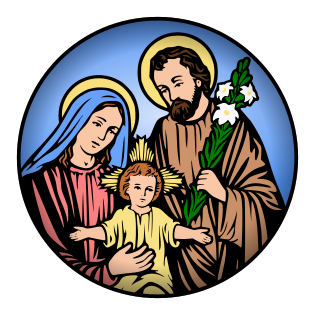In Biblical language the term ‘judgment’ means this: the eternal retribution – reward or punishment – received by every soul at the moment of death, in accord with that person’s faith and how he or she lived – their works. The Last – or Final – Judgment is God’s triumph over evil and will coincide with the Second Coming of Christ at the end of time. Nothing depicts this in greater detail – and maybe with a degree of accuracy – than Michelangelo’s Last Judgment fresco located above the altar in the Sistine Chapel. Christ and His Mother are the central figures … those rising to eternal life ascend on His right and those damned descend to hell on His left … It’s the final separation – precisely what we hear in the Gospel today …
The historical background of this painting is of interest… Commissioned by Pope Paul III in 1534 … only 7 years after the sack of Rome. It was the Pope’s intention to address abuses following the Protestant Reformation and the legitimacy of the Catholic faith. In a sense you had both civil and religious unrest happening at the same time … sound familiar? What would have been the message the Pope meant to convey? Perhaps this question: What matters most to you? In the unsettling nature of the time, he is saying: Christ matters most, eternal life, how we live and breath the faith of the Church, how we serve God and treat one another … there is no other savior than Jesus Christ, who, as is depicted in this magnificent work of art, is the only One who has the power and authority to save our souls … or condemn. No person on earth – no matter who, or how important or powerful – can save our souls … Only God can judge … only He can save our souls …
It is interesting … I have commented and preached on this Gospel for years and more often than not, the message, broadly speaking, falls to love of neighbor – its pretty obvious. Yet, it really is so much more than that … For the first time, I realized that it isn’t just about love of neighbor – it is about the love of God … whom do we serve? I see it now, more than ever, in our divided country, in our divided Church, in our politics and our allegiances to one or more political figures … whom do we serve? Who or what takes pride of place in our lives? Does what do, how think, speak and act – does it reflect our love for God and of our service to Him and one another? In other words – is it evident in our lives that Christ is our King? We must realize, now more than ever, that it is far better for us to serve God, to align ourselves with His policies and teachings because to serve Him means to serve one another … and as such we then become agents of mercy, peace, and unity …
Proclaimed in 1925, Pope Pius XI instituted this feast day amid the growing secularism and nationalism of his own time … Much like Pope Paul III when he commissioned the Last Judgment. He was sending a message during an unsettling time period. And today it seems far more significant. Today, the Church, we, need each other … not to be causes of division among ourselves but rather to be agents of mercy, promoters of harmony … we need not add to the civil and religious unrest but rather fight against it … Today is a reminder, that our highest and first priority is to serve God – to love Him above all else … to seek His mercy in order to become a people of mercy and therefore to be able to reflect – in how we think, speak and act – that Christ is our Life, He is our King… and only His judgment matters … for to serve Him is to be swept up and ascend with the angels to eternal life.
